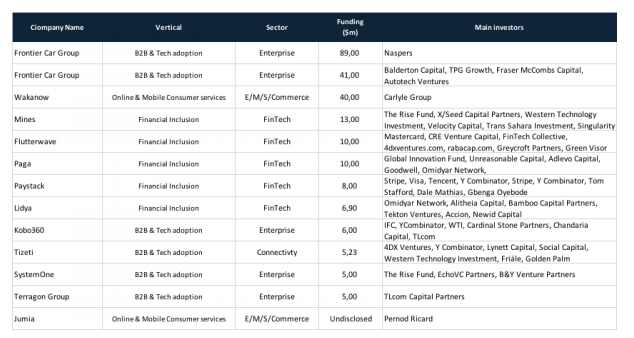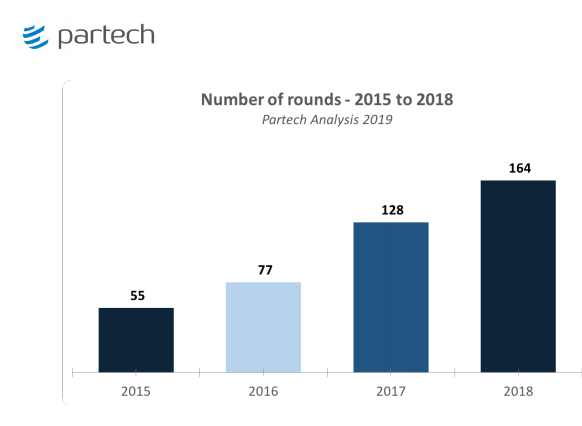
Partech Africa has released its yearly startups funding report for Africa. African startups broke record book in 2018 – 146 of them raised US$1.163 billion in equity funding over 164 rounds. That is a 108% year-on-year growth in funding when compared with 2017 numbers. From the report, Nigerian startups attracted US$306 Million (+167% YoY) in funding over 26 deals (+53% YoY) with a total of 12 startups raising 13 rounds equal to or higher than US$5 Million.
In 2018, 146 African start-ups raised a total of US$1.163 Billion in equity through 164 rounds, this is a +108% growth YoY, compared to +33% in 2016 and +53% in 2017. This represents x4.2 growth multiple over the last 36 months.
[…]
The three countries received 78% of the total funding with Egypt close behind, an exact repeat of last year. Kenya took the lead attracting US$ 348 Million (+136% YoY) in funding over 44 deals (+76% YoY), Nigeria has attracted US$ 306 Million (+167% YoY) in funding over 26 deals (+53% YoY) and South Africa slowed down compared to Kenya and Nigeria, with US$ 250 Million (+49% YoY) in funding over 37 deals (-12% YoY).In the rest of Africa, there were 19 countries with at least one equity tech deal above US$ 200K this year, compared to 13 countries in 2017. So, it is clear that the rest of the continent is actually growing as fast as the top 3 markets and now attracts decent attention. It’s important to note though that Egypt takes the lead here with 19 deals, nearly catching up with South Africa in activity. Regarding French-speaking Africa, Senegal confirms itself as the leading hub with US$ 22 Million raised in 4 deals.
As typical, the data collation remains challenging – this number is different from what Weetracker published for 2018. Weetracker had reported that $726 million was invested in African startups. Sure, everything depends on metrics used by the tracking companies.


Full Press Statement
Register for Tekedia Mini-MBA edition 19 (Feb 9 – May 2, 2026): big discounts for early bird.
Tekedia AI in Business Masterclass opens registrations.
Join Tekedia Capital Syndicate and co-invest in great global startups.
Register for Tekedia AI Lab: From Technical Design to Deployment (next edition begins Jan 24 2026).
---
Connect via my
LinkedIn |
Facebook |
X |
TikTok |
Instagram |
YouTube

